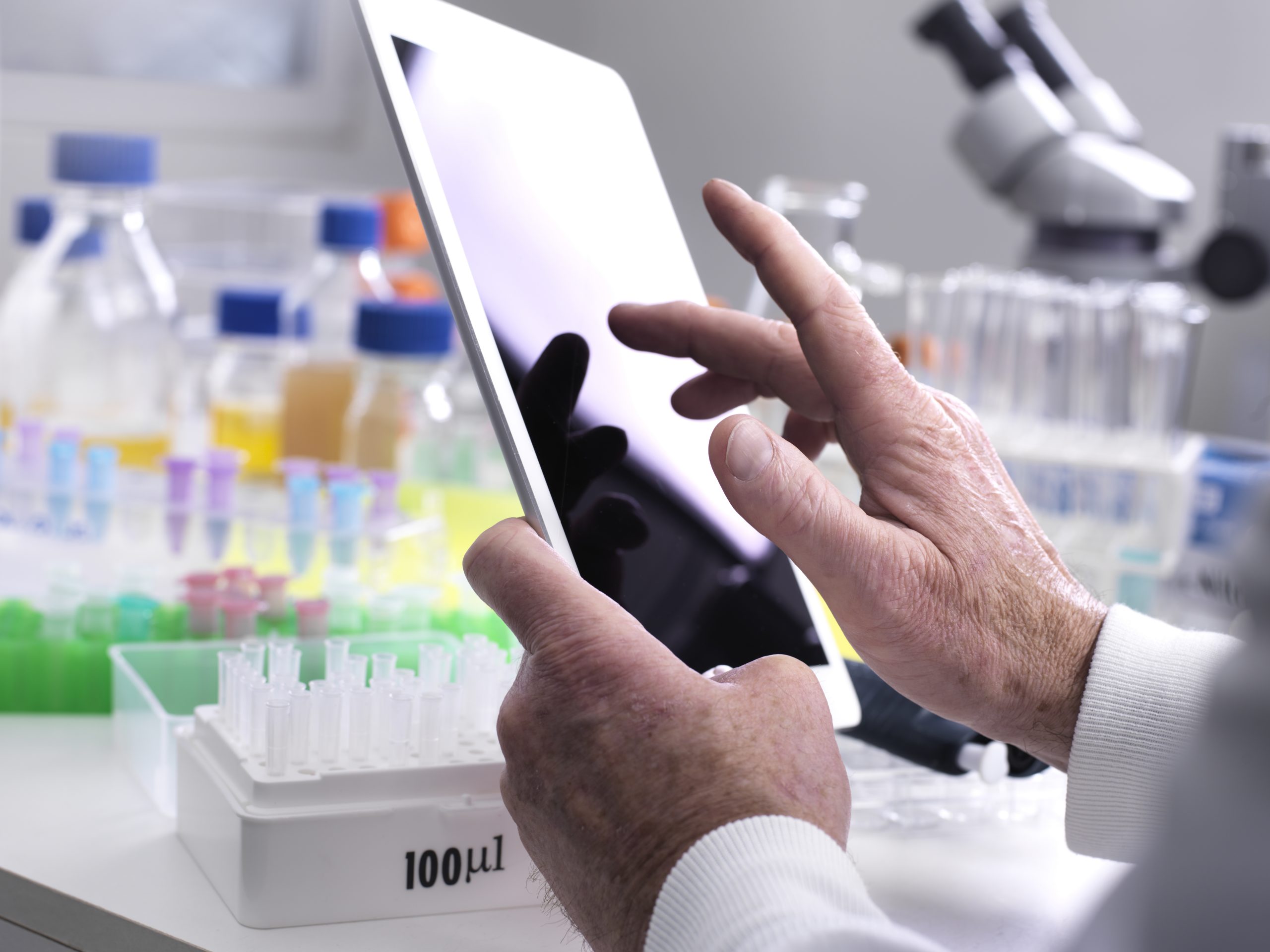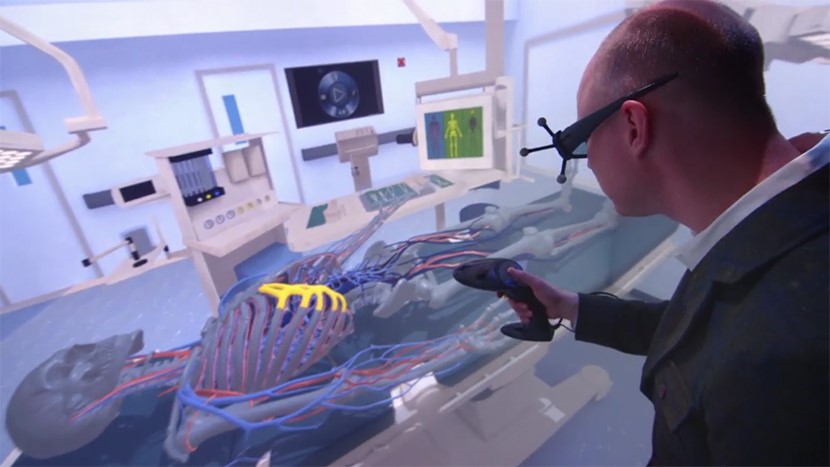
When you have a long-term vision of the economy as well as the business of an international listed company and when you are athletic, it is not surprising that you are interested in health. The number one issue and source of concern for the majority of us, health projects us into the future with the evidence that the end of life is more and more distant from our daily lives. Bernard Charlès, CEO of Dassault Systèmes, declared in November to Les Echos: “digitization will radically change the economic model of health systems”. Because our future, including health, has become digital. We are and will be more and more impacted by the digitalization of everything around us, objects but also living beings. What was only a “field of possibilities” 30 years ago is now a gigantic market open to all those who can simulate reality with digitization solutions.
The digital giants conquer mankind!
In the United States, the GAFAMs have been agitating for a long time in the health sector, joined by Elon Musk and his dream of almost eternal life, among other gurus of augmented man. The American federal system is trying to bring together all of the patient data through Medicare, and a platform called the Carin Alliance, bringing together nearly 50 private sector players specializing in health, which allows everyone to choose their doctor or pharmacy. Apple, Microsoft and Google are among them and all hope to use data to fuel their innovation projects. In the UK, Prime Minister Boris Johnson announced this summer an investment of £ 250million in an Artificial Intelligence lab to detect and predict disease.
All over the world, digital technology is turning to the healthcare sector with the hope of improving the lives of humanity. But questions of ethics and respect for people inevitably arise when we talk about data leaks already seen at Facebook, or even Google. “The Gafa will simply, initially, allow the patient to have access to all of his medical history. Then, if he agrees to share his data with his doctor, his health insurer or even Apple, Microsoft or Google, these players can use them as they see fit ”, explains Ryan Howells, director of the consultancy firm Lewitt Partners .
So when Dassault Systèmes, under the leadership of its CEO, invests nearly $ 6 billion for the takeover of Medidata, an American company that is developing the digitalization of clinical tests, we can only be delighted to see the French leader world of simulation software, enter the battle forcefully. However, clinical trials last between two and five years at least (or even 10 years in some cases) and are essential for the development of new drugs. Reducing this time to market through digitization and simulation is a huge hope and economic challenge for the laboratories and the patients that we all are.
“Everyone uses our software in the pharmaceutical industry (who doesn’t want to be said) and besides, we created an ultimate and imaginary drug to be able to say, this is what you could do with our software. It can completely change the market and its business model. The message of experience works well in health – what matters is the service provided, not the product; however, people do not want to buy chemicals, they simply want to live better, ”says Guillaume Kerboul, who heads the Life Science Industry division at Dassault Systèmes.
To simulate is to train!
Another aspect of the progress that technology can bring to the medical world is that of the reliability and quality of diagnostics and care, while respecting as much as possible the essential principle: “never a first time on the patient”. It is this mission, well beyond a promise, that SimforHealth pursues, under the aegis of its president Jérôme Leleu. By training more than 50,000 health personnel, via immersive simulations and hyper-realistic scenarios, this young French growth, supported by the BPI, is at the forefront of medical training. We imagine today that a surgeon will have the capacity to train to operate in real conditions, exactly as an airline pilot learns in a simulator to face the worst flight and landing conditions.
But beyond these situations drawn from the practice of medicine, it is also necessary to modify behaviors and minds. Attracting the best talents in IT or mathematical modeling to the health sector is not easy. “In addition, pharmaceutical laboratories are huge structures (whose R&D staff number in the thousands), which have great difficulty in reinventing themselves or seeing the world from a completely new angle. We are also there to allow them to imagine health other than in terms of medication or treatment. For example, Sanofi has developed a smartphone application that draws a line on the ground for Parkinson’s patients and trains them to walk upright. And since the health benefit is very real, it is a digital drug, which social security will be able to reimburse and which will cost the community much less, ”explains Guillaume Kerboul.
It is therefore the role of certain innovation players to challenge the old models. However, in the health sector too, things promise to move very quickly. Remote medical visits, 3D printing of prostheses perfectly adapted to an individual, the development of connected objects to improve compliance and the precise delivery of expensive treatment, are examples of the changes that are already underway. Training future doctors, educating the people who will provide home care for the elderly and dependent, but also seeing the patient differently and using digital technology to provide him with better service, are performance axes for all stakeholders.
To simulate is to prevent!
Some people think of health no longer in a curative or corrective way but more in a predictive or preventive posture. Let us remember that the Apple Watch was presented to us and sold to us as a means of monitoring our daily activity, our hours of sleep, and other indicators of our hygiene of life. Connected objects have become good means of observing our physiological constants and, linked to a virtual doctor, will soon be able to predict our future failures.
So, will we be able to predict and, consequently, prevent heart attacks or strokes? In any case, it is a subject of research and exploration that requires unprecedented digital and data analysis resources. “Because forecasting means using models and in health, models are more complicated. For example, modeling the human body (all the different bodies since each human is unique) is a huge development challenge. To be honest, we are not ready yet! We are starting to model organs, parts of the body, but we still have a lot of work to do to simulate all the interactions that our body is going through all the time. The most spectacular is undoubtedly the “living heart project” developed with the agreement of the American FDA and for which digital clinical trials are underway, ”explains Guillaume Kerboul.
Studying the human body, predicting its reactions, its future breakdowns, is probably the most economical route in terms of resources and painful and expensive treatments that is offered to us. Faced with demographic growth and aging populations, health will inevitably have to record efficiency and productivity gains. The theme is crucial for health systems based on professional excellence associated with generous support from the State like that of France. Convincing an entire profession of the benefits of digitization is another way of preventing the inevitable changes it will experience in the next 20 years. Anticipating, predicting, testing, are the positive reflexes of a company resolutely turned towards the future. For Bernard Charlès, it is clear that the era of industrialization of health has just begun: “today, medicine is craftsmanship with its nobility but also its limits. The health system needs to take advantage of the same techniques and the same organizations that have enabled industry to produce more, ”he concludes in his interview with Les Echos.
Is our health in good hands? Do we have a better choice than to speed up research, change our behavior and imagine solutions to help us better understand and treat our bodies? There are incredible sources of performance in the health sector. Think that good adherence to treatments is on average only 51%! “The impact for pharmaceutical companies is a loss that represents up to 38% of their revenues,” Guillaume Kerboul tells us, to better underline the progress still to come.
Everything has to be started over. We are in better health than in the last century. Thanks to digital technology, we will be better humans, starting tomorrow.



